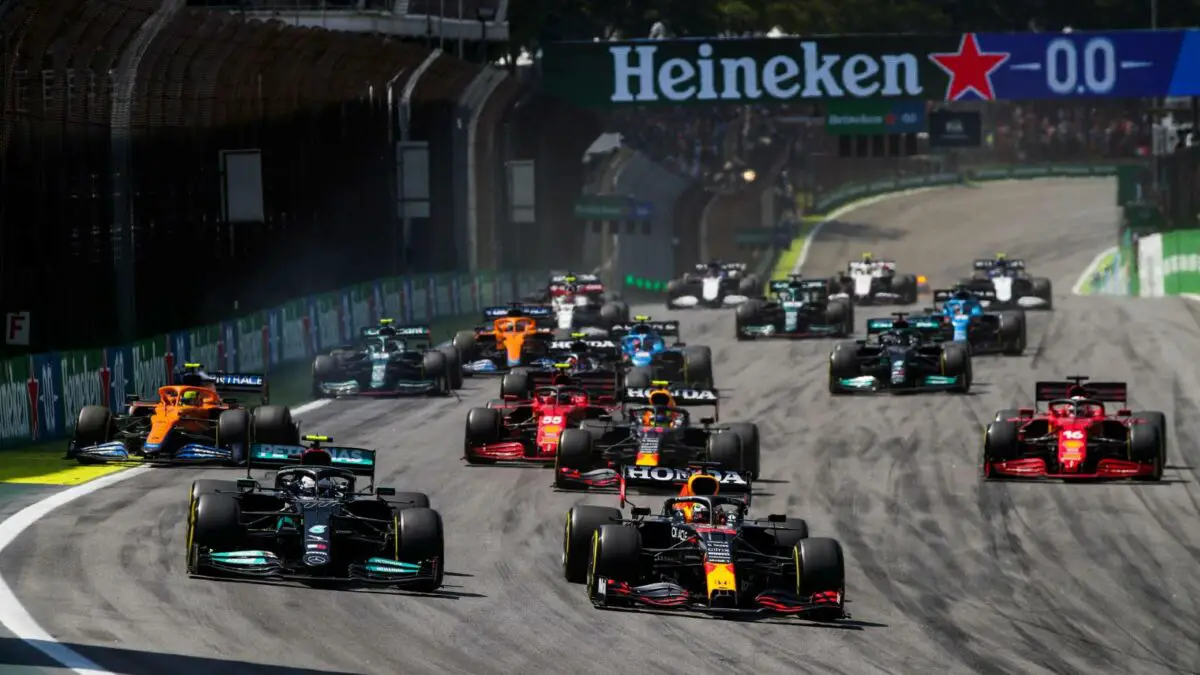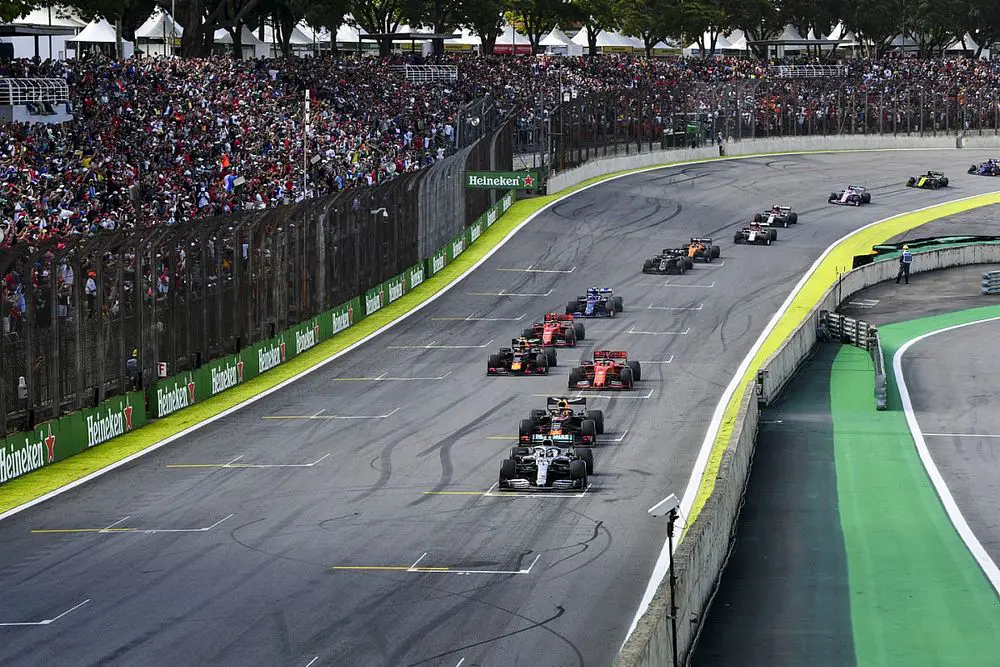Let us take a look at the weather forecast for the Brazilian Grand Prix, scheduled to take place this weekend at the Interlagos circuit
F1 action moves to Sao Paulo this weekend for the much-anticipated Brazilian Grand Prix. It is scheduled to take place from November 3-5. Let us take a detailed look at the weather forecast for this weekend’s Brazilian GP.

The upcoming Brazilian Grand Prix at the Interlagos circuit is expected to commence amidst rainy weather. Nevertheless, as the weekend progresses, the forecast predicts improving conditions that are more conducive for racing. Although this region usually enjoys pleasant temperatures at this time of year, there is a possibility of sporadic heavy rain showers. The outlook indicates that Friday may see scattered thunderstorms, but Saturday and Sunday are anticipated to bring sunny and warm weather. Now, let’s dive into a detailed analysis of the weekend’s weather forecast.
For Friday’s practice sessions, it is expected that the skies will stay cloudy, with a possibility of rain. Temperatures might be slightly cooler. However, conditions are anticipated to improve for Saturday’s Sprint session. Sunday’s race day is likely to have similar weather to Saturday, and there are no indications of rain causing any disruptions. Fans can look forward to a race without any weather-related interruptions.
Brazilian Grand Prix – Weather History
The Brazilian Formula 1 Grand Prix, traditionally held at the Interlagos circuit in São Paulo, has a rich history with varying weather conditions that have added drama and unpredictability to the races over the years.The weather in São Paulo, and specifically at the Interlagos circuit, can be quite changeable due to its tropical climate. Rainfall is a common feature, and this has had a significant impact on the race’s outcomes. The track itself is known for its undulating layout, and the combination of rain and elevation changes makes it challenging for both drivers and teams. Rain can turn the track into a slippery and treacherous surface, testing the skill of the drivers and the adaptability of the teams.

One of the most memorable moments in the Brazilian Grand Prix’s weather history occurred during the 2016 race when heavy rain led to a series of dramatic incidents. Multiple safety car periods, red flags, and aquaplaning were the order of the day. Max Verstappen’s incredible drive from 14th to victory in the wet conditions remains one of the most iconic moments in recent F1 history.
The Brazilian Grand Prix has also witnessed championship-deciding moments affected by the weather. In 2008, the race saw a torrential downpour that played a pivotal role in Lewis Hamilton clinching his first World Championship title. His ability to maintain his composure and navigate the slippery track was a testament to his skills as a driver.
Brazilian Grand Prix – Weather Pattern
The weather pattern of the Brazilian Formula 1 Grand Prix is characterized by its variability, owing to the country’s tropical climate. The race is held in November, which falls during the Brazilian spring season. During this time, São Paulo experiences a range of weather conditions that can have a significant impact on the race. Rain is one of the defining features of the Brazilian Grand Prix. The Interlagos circuit, where the race is held, is located in a hilly area, and the proximity to the Atlantic Ocean means that it can experience sudden rain showers.

These showers can be intense, and the track’s layout, with its elevation changes and challenging corners, makes it particularly treacherous in wet conditions. Rain has often led to unpredictable and dramatic races, with frequent changes in tire strategy and numerous safety car periods. On the other hand, São Paulo can also experience periods of high heat during the Brazilian Grand Prix. The temperatures can soar, and the combination of the intense heat and the demanding track layout can put significant stress on both the drivers and the cars.
The Brazilian Grand Prix’s unique position in the F1 calendar as one of the penultimate races of the season means that it can sometimes be the site of championship-deciding moments. The unpredictable weather conditions only add to the drama and uncertainty surrounding the race. Drivers and teams must be prepared for anything, making the Brazilian Grand Prix a favorite among both competitors and fans for its weather-induced unpredictability.
More Formula One news:
- Lewis Hamilton doesn’t support IOC’s decision on Black Lives Matter gear during Olympics
- Max Verstappen left surprised as he reaches 100 race milestone with Red Bull
- Damon Hill left in awe after Lewis Hamilton racks up 100 poles in F1 ahead of 2021 Spanish GP
Follow our dedicated Formula One page for instant Formula One news and updates

